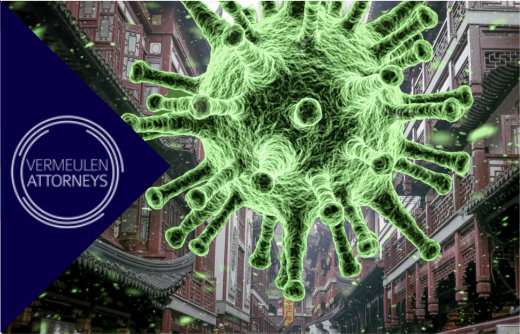Corona Virus Sick Leave Case Study : Ursula Govender is a project manager at Eskom and has been for the last 7 years. In February 2020 Mrs Govender was sick with the flu and used 3 days of her available sick leave. In September 2020 she became infected with the Covid-19 virus and subsequently used all of her remaining paid sick leave while recovering. Now, in January 2021 she has become infected with the COVID-19 for a second time. Although she is not showing any symptoms, her main concern at the moment is that she has no further paid sick leave days left and simply cannot afford the financial strain she will experience through unpaid sick leave. How has the pandemic affected her sick leave and are there any remedies available to her.
With the number of COVID-19 infections increasing significantly during the ongoing second wave of the global pandemic, employers have gotten use to the new normal of dealing with employees who have tested positive for the virus, those who show COVID-19 related symptoms and those who have come into contact with someone who has tested positive. In this uncertain times and employer and employee should, however, be certain of when sick leave should be used.
In terms of the Directive published, any employee who has tested positive for the virus must remain in self-isolation for a mandatory period of 10 days before being allowed to return to their place of work. Should the employee be absent more than 2 days from his or her workplace, an employer is entitled to require the employee to produce a medical certificate as proof of illness and/or more specifically as proof of testing positive for the virus. In these circumstances, it is advisable that an employee use his or her sick leave. However, should an employee’s paid sick leave be exhausted, the Consolidated COVID-19 Direction on Health and Safety in the Workplace requires employers to apply for TERS UIF illness benefit. Should an employee be absent from work for more than seven days, the employee may also apply for UIF illness benefits.
In the circumstances where an employee is at a high risk of being exposed to an infected employee, the Directive requires that the employer place the employee on paid sick leave for a period of 14 days. As in the case above, the employee may apply for the TERS UIF illness benefit or the UIF illness benefit. It is important to note that an employer does not have the discretion to allow such an employee to return to work earlier than a period of 14 days.
Should an employee inform the employer that he or she is experiencing COVID-19 related symptoms, the employer may not allow the employee to report for work or to enter the workplace and must place the employee on paid sick leave.
If an employee starts showcasing COVID-19 related symptoms while at the place of work, the employee should be isolated immediately and/or transported to self-isolations. The Directive requires symptomatic employees to be placed on paid sick leave but states that an employer may require a medical certificate.
For more information on Labour matter please contact us.













